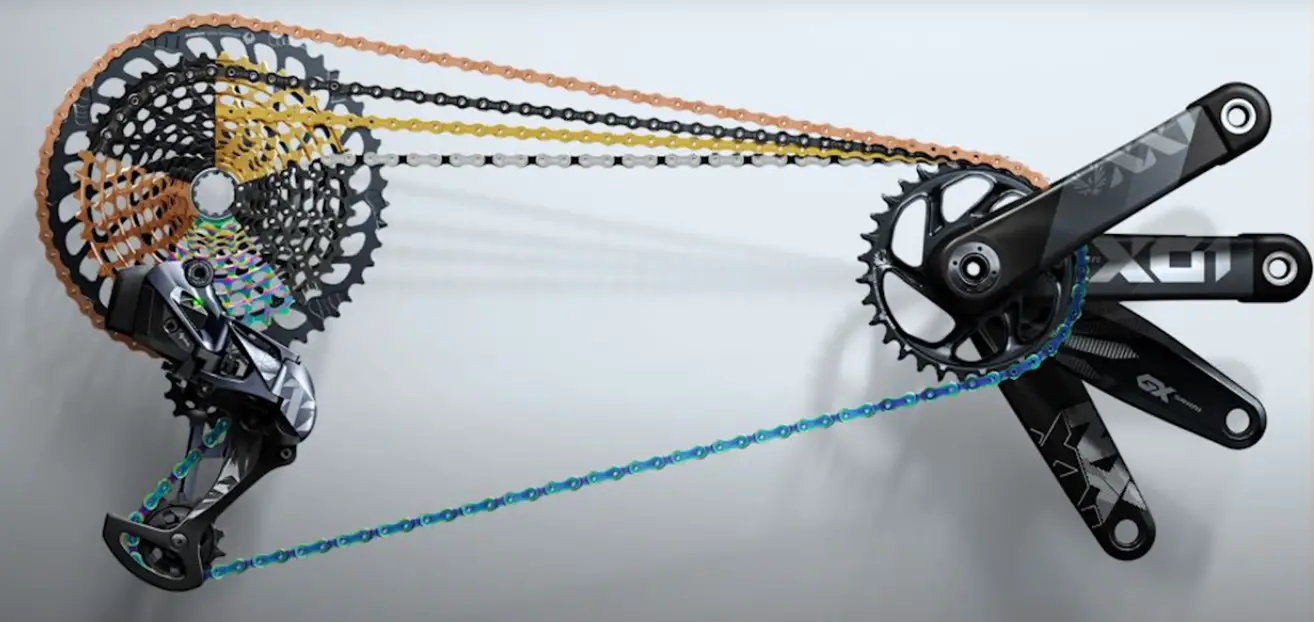When it comes to choosing the right gear setup for your bike, one question often comes up: is 11 gears on a bike good? This is a common inquiry among cyclists, as the number of gears plays a significant role in the bike’s performance, efficiency, and overall experience. An 11-gear bike offers a wide range of shifting options, providing better control over your pedaling and performance on various terrains.
However, your riding style, the terrain you’re riding on, and your personal preferences will all determine whether or not it’s a good fit for you. We will now dissect the advantages and possible disadvantages. Here we will break down the benefits and potential drawbacks.
1. What Are 11 Gears on a Bike?
First of all, to be able to measure if 11 gears are for you, let’s learn what this type is and how it works. An 11-gear bicycle typically has an 11-speed cassette on the rear wheel and the same chainring set on the front. This gear provides you with the ability to change gears between 11 distinct speeds, offering you numerous choices when riding across different types of terrain.
The rear cassette is typically paired with a derailleur, which moves the chain between gears to facilitate easier shifting. The setup delivers the optimum balance between ease and versatility for cyclists seeking additional gear range.
2. Advantages of 11 Gears
While every cyclist has different needs, there are certain advantages of 11 gears on your bicycle, which can be both performance-boosting as well as efficiency-boosting.
- Better gear range: With 11 gears, you get a decent range of speeds, and you do not have to struggle to locate the right gear for any terrain. No matter if it is steep inclines or flat ground, the configuration is more versatile.
- More subtle gear shifting: The extra amount of gears offers more nuanced transitions in speed, which smooths out the ride.
- Better efficiency for various terrains: An 11-gear bike is able to adapt to various types of terrain to offer efficient pedaling, whether on a road or trail.
3. The Disadvantages of 11 Gears
There are certain drawbacks to consider when selecting an 11-speed bike.
- Increased complexity in maintenance: An 11-speed mechanism is more complex than simpler setups, requiring more frequent servicing and realignment to achieve optimum performance.
- Increased weight: The added gears and mechanisms contribute to the overall weight of the bike that will decrease speed and efficiency, particularly in performance cycling.
- Potentially unwanted by recreational riders: If you are generally riding flat ground or shorter trips, you may find that an 11-gear system is more complicated than you need, and you would be better off with a lesser gear system.
4. Who to Ride a Bike with 11 Gears?
An 11-gear set-up is not ideal for every bike rider, but it can be a good choice for some cyclists. If you ride regularly on undulating terrain, such as hills, rough trails, or mountain trails, the 11 gears will give you the flexibility to alter the speed for climbing and descending.
Endurance riders or racing riders will benefit from the finer gear ratio adjustments, allowing them to optimize performance. Also, long-distance cyclists may find the variety of gears helpful for the extra comfort and efficiency in managing fatigue.
5. An 11 Gears vs. Other Gear Configurations (i.e., 7, 9, or 12 Gears)
In what way is an 11-gear setup different from other widely used setups like 7, 9, or even 12 gears? Let us investigate the differences.
- Simplicity or complexity: While 7-gear systems are straightforward and easy to repair, an 11-gear system provides more sensitivity of control over the pedaling input.
- Gear range and versatility: An 11-gear bicycle enjoys a broader range of speeds compared to 7 or 9 gears and therefore accommodates varied terrain better. But a 12-gear system could supply even finer adjustments for experienced riders.
- Weight considerations: Fewer gears (7 or 9) will mean less weight, but the 11-gear variant adds weight, with some loss of performance and maneuverability.
6. Does 11 Gears Affect Your Bicycle’s Performance?
The number of gears on your bicycle can affect its performance in general, particularly when it is about ease of shifting and speed on different ground types.
- Climbing vs. flat terrain: You can easily adjust small changes in speed using the 11-gear system, and therefore climbing high hills is very easy. When on flat terrain, you can achieve the ideal gear for effortless, high-speed riding.
- Efficiency in high-speed cycling: Since you have more gears, you can maintain a more even cadence, which is ideal for long-distance or high-speed travel so you’re not exerting yourself too much. This versatility proves handy in maintaining energy on lengthy rides.
7. Maintenance and Durability of 11-Gear Systems
It might be easier to care for an 11-speed bike than for more complicated configurations, but with proper maintenance, it can yield great durability and longevity. The advanced gear system must be kept clean and lubricated regularly to ensure the bike glides smoothly. The more complex parts, such as the rear cassette and derailleur, must be serviced every now and then for wear and tear.
Additionally, the chain and gears need to be in top condition to prevent skipping or rough shifting. Proper maintenance enables your 11-gear system to last for thousands of miles and perform optimally under all conditions.
FAQ’s
Is an 11-gear bike better than a 7-gear bike?
“An 11-gear bike is more versatile and has a greater range of gears, ideal for riders who ride on complex terrain or like to have more control over their cadence.”
Is an 11-gear bike suitable for a beginner rider?
“While beginners might not need all the functionality of an 11-gear bike, riders who travel on varied terrain or plan to upgrade in cycling will find it beneficial.”
Do more gears on a bike make a difference in performance?
“Yes, more gears provide a wider range of options for adjusting to different terrains, making it easier to find an ideal cadence and improve your overall performance.”
Are 11 gears harder to maintain than fewer gears?
“Yes, an 11-gear system can require more maintenance due to its complexity, but with proper care, it can last for a long time.”
How will the number of gears affect cycling speed?
“Even though the number of gears per se doesn’t necessarily affect speed, more gears provide more flexibility in being able to handle various kinds of terrain, allowing you to maintain an optimum cadence.”
Can an 11-gear bike be used for mountain biking?
“Yes, you can use 11 gears for mountain biking with ample gear range for climbing and descending on rugged terrain.”
How much does a 7-gear compared to an 11-gear bike weigh differently?
“A bike with 11 gears will be slightly heavier than one with fewer gears due to the additional parts, but the weight difference is usually minor.”
Is an 11-gear system more expensive than other gear systems?
“Yes, bikes with an 11-gear system cost more due to the greater complexity of the drivetrain and parts.”
Conclusion
Having weighed the pros and cons, it’s clear that an 11-gear bike can be a great choice for most bikers, but is it right for you depends on your cycling style, terrain, and experience. If you’re a hobbyist or competitive road rider performing a combination of terrains, an 11-gear system offers the flexibility and performance benefit needed under varied conditions.
But for casual riders or riders who ride mostly on level terrain, a less complicated gearing arrangement might be perfectly sufficient. The decision really boils down to balancing the benefit of extra gears against your pattern of riding.

I am Ryan Ford, a mountain biking enthusiast who loves to explore the outdoors. I also like to go on adventures with friends and anything else that involves being outside. I love my bike because it gets me out of the house and gives me an opportunity to enjoy nature.

